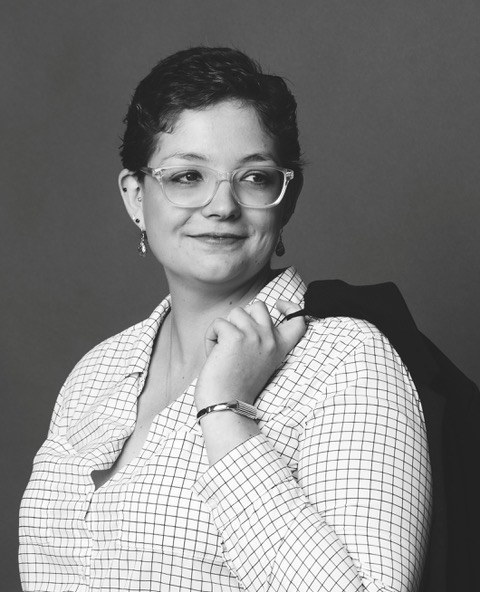EASP Travel Grant Report
19.01.2024, by Media Account in grant report
By Miriam Wickham

Report on the Utilization of Grant Funds for PhD Research about Non-binary Gender Categorization
As a recipient of an EASP postgraduate member travel grant, I am pleased to provide a comprehensive account of how the allocated funds were utilized: the activities undertaken, the degree to which the research goals were realized, and the broader contributions of these activities to my PhD research within social psychology. In my PhD I examine binary (man/woman) and non-binary (more than two options) conceptualizations of gender, and how they affect, among other things, social perception of the self and others.
My activities within this grant were two-fold: I collected data among a Dutch and Flemish sample for a project in collaboration with the lab of Colette van Laar at KU Leuven, and “visited” their lab online due to covid-19 travel restrictions. I describe each of these activities, and how they contributed to the goals of the grant, below.
Data Collection
The primary goal of this grant, as described in my proposal, was to support data collection for a collaborative research project about gender categorisation. People have a tendency to categorize others into binary categories of male or female using different criteria, such as length of hair, roundness of cheeks, clothing, or mannerisms. However, sometimes we receive conflicting information, such as a ‘masculine’ face attached to a body in ‘feminine’ clothing (a dress). In such instances, we make decisions by giving more weight to one piece of information than the other. By experimentally manipulating the information provided to a participant, we can further explore the decisions that are made so that gender categorizations occur.
In our research, we investigated gender categorization processes beyond the traditional, binary approach that is often used in gender categorization studies. With a binary approach, participants categorize others as either ‘men’ or ‘women’ using only biological markers (i.e., a picture of a face). However, in our experiment, we presented participants with facial stimuli as biological markers and shoes as social markers of gender. We chose shoes because human feet do not differ as significantly between men and women as other body parts, on average. Furthermore, participants were placed into different conditions, which either emphasised a binary or non-binary conceptualisation of gender. We successfully achieved our goal of shedding light on gender information processing in different (binary or non-binary) social contexts. Furthermore, our research provides insights into the potential impact of the changes we are seeing in society, whereby more gender options are being added to forms and gender-neutral pronouns are becoming more normalized, on how we process gender information.
We successfully gathered data from student participants, whom we compensated with the grant money, at both the University of Utrecht (UU) and KU Leuven, in line with the original plan. However, as the pool of student participants willing to participate began to dwindle, and we were under time pressure, we expanded our data collection to include Dutch and Belgian participants from the Prolific platform, thereby ensuring that we met our power requirements efficiently. The grant allowed us to conduct a well-powered study with a novel and innovative addition—online eye-tracking through webcams. This methodology can be strenuous on participants because they have to sit still and keep their eyes open; we were thus happy to be able to compensate them for this. The addition of the eye-tracking measure significantly enriched our dataset, providing a deeper and more comprehensive understanding of (binary and non-binary) gender information processing, by allowing us to measure people’s attentional processes as well as their behaviour.
This research study was final in a series of four collaborative studies with the KU Leuven lab. Although our initial aim was to submit the resulting manuscript with all four studies to a journal, we are still in the process of finalizing and refining the manuscript. Nevertheless, preliminary results are highly promising, and we are confident that an international journal will express interest in this collaborative project.
Online Research Visit at KU Leuven
The original plan involved an in-person visit to KU Leuven – a secondary goal of the grant. However, the unexpected challenges posed by the COVID-19 pandemic required us to adapt. We successfully transformed the visit into a virtual online research visit, ensuring the safety and well-being of all people involved.
The grant thus facilitated an online research visit to KU Leuven. It allowed for collaboration with the KU Leuven research group, enabling me to participate in their online lab meetings effectively, as I had a goal in mind: to work together on this collaborative project. This collaboration not only offered insights into their research but also allowed for the exchange of ideas and research experiences. Collaborating with the KU Leuven lab also provided me with the opportunity to contribute meaningfully to discussions in lab meetings. Engaging with the KU Leuven research group opened doors to fresh perspectives and innovative ideas. These insights undoubtedly influenced not only the research within my PhD but also my future research projects.
Conclusion
The allocation and utilization of the grant funds have contributed to advancing our understanding of gender information processing in evolving social contexts. The collaboration with the KU Leuven research group, while necessitating adjustments due to unforeseen circumstances, has been an enriching learning experience. Moreover, the promising results of the study provide a strong foundation for future publications. These activities have not only advanced my PhD research but have also enriched my broader research initiatives in the field of social psychology.